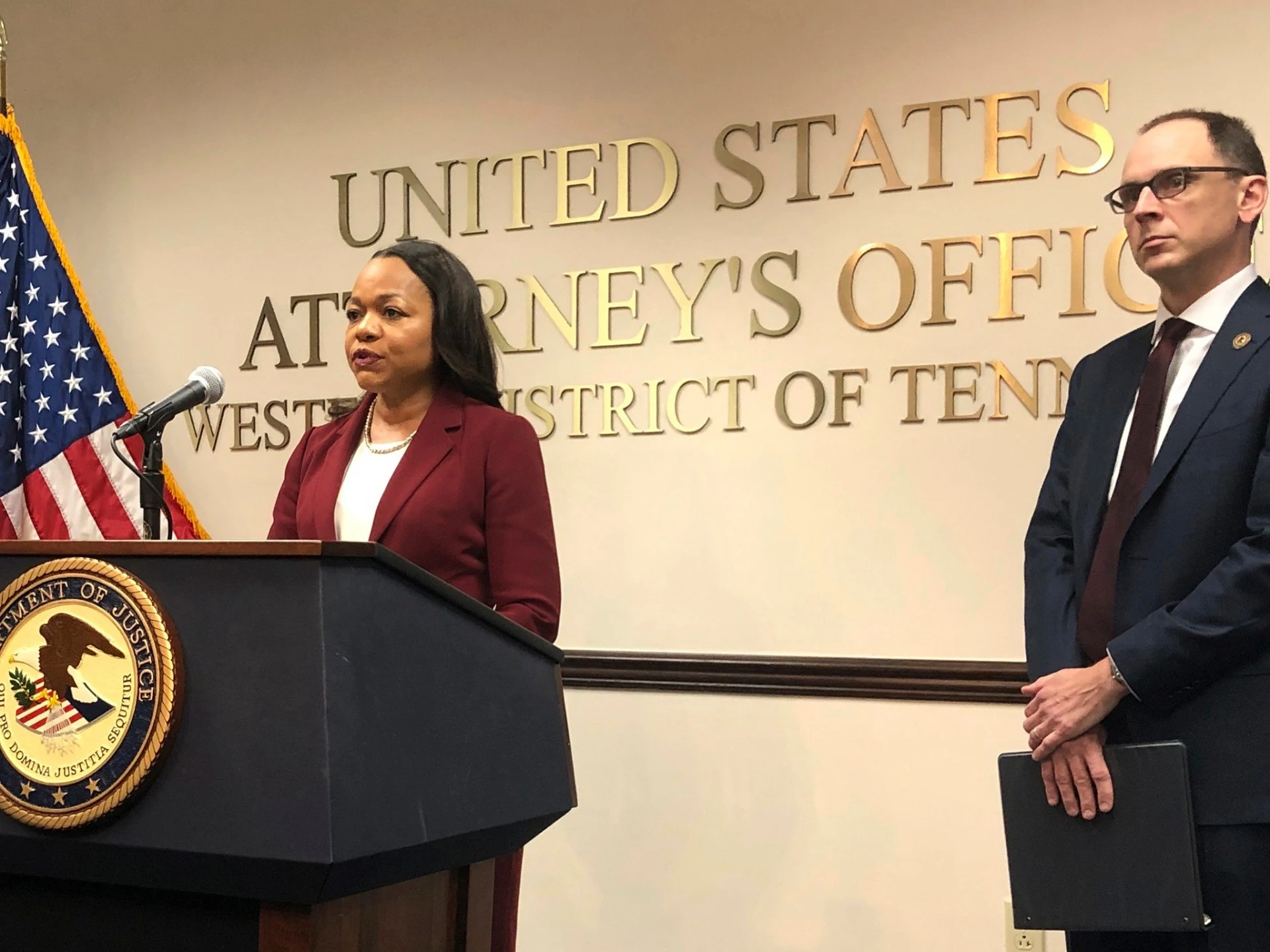US Justice Department opens civil rights probe into Memphis policing
US Justice Department opens civil rights probe into Memphis policing

The investigation centres on questions of discrimination in the wake of the beating death of 29-year-old Tyre Nichols.

The US Department of Justice has opened a civil rights investigation into the city of Memphis and its police department, months after the beating death of a 29-year-old Black motorist catapulted local law-enforcement tactics into the national spotlight.
At a news conference on Thursday, Assistant Attorney General Kristen Clarke acknowledged the outrage that followed the killing of Tyre Nichols, who died in hospital after being pulled from his car during a traffic stop, and tackled and assaulted by police.
“In January of this year, the nation witnessed the tragic death of Tyre Nichols at the hands of Memphis police,” Clarke told reporters.
“City and police department leaders recognised the need to scrutinise the police department’s practices to prevent such incidents from ever happening again.”
But Clarke underscored that the investigation was not “based on a single incident or event”, and she described “multiple reports of officers escalating encounters” in the city.
“There are also indications that officers made use of force punitively when faced with behaviour they perceived to be insolent,” she said. “The information we reviewed also shows that officers may use force against people who are already restrained or in custody.”
Clarke also said that traffic stops like Nichols’s are not uncommon in Memphis, where nearly 65 percent of residents identify as Black, according to the 2022 census.
“Our review indicates that even in a majority Black city, MPD’s [Memphis Police Department’s] traffic enforcement may focus disproportionately on the Black community,” she said.
Memphis is the latest city in the United States to face a federal civil rights investigation as the country continues to grapple with widespread calls to address police violence, particularly against Black people and other people of colour.
In June, the Justice Department concluded a similar probe in Minneapolis, Minnesota, where the 2020 police killing of George Floyd sparked protests around the world.
The investigation found that Minneapolis police had discriminated against Black and Indigenous people, among others. It also found “unjustified deadly force” had been used.
Similarly, the Justice Department found civil rights violations in Louisville, Kentucky, in a separate investigation that concluded in March.
Those findings echoed widespread concerns about abuse of power and discriminatory practices in US police departments.
A 2021 report in the medical journal The Lancet found that half of all deaths due to police violence between 1980 and 2018 went unreported in a federal database. Of those, an estimated 9,540 Black deaths went unaccounted for or mislabelled.
The study also noted that Black men were 2.5 times more likely to be killed by police than their white counterparts.
In the Nichols case, much of the attention has focused on Memphis’s so-called “Scorpion Unit”, the elite police team that carried out his arrest.
The Scorpion Unit was designed to address violent crime in the city, though advocates say it has contributed to an aggressive, “cowboy” police culture.
Memphis has seen a 5.4 percent increase in violent crime since 2022, part of an upward trend since 2011.
Clarke acknowledged that the Tennessee city faced “one of the country’s highest rates of violent crime”. “When crime is high, there is an understandable urgency to respond,” she said.
But Kevin Ritz, the US attorney for the Western District of Tennessee, emphasised that law enforcement’s primary responsibility is to protect. “Here’s the thing. Public safety requires public trust in law enforcement,” he said.
“The police officers who risk their lives every day in the line of duty need the public to trust them. Community trust makes policing more effective and less dangerous for both officers and the people they protect.”
The civil rights investigation will weigh whether Memphis and its police violated the US Constitution or federal civil rights law in a “systematic way”.
Unlike a criminal investigation, which may end with charges, the probe will culminate in a report if violations are found.
The Justice Department will then work with the city and police officials to reach an agreement on next steps. Should the parties fail to agree on remedies, the Justice Department has the option to bring a civil lawsuit against Memphis.
The Memphis probe is the Justice Department’s ninth such investigation during US President Joe Biden’s administration.